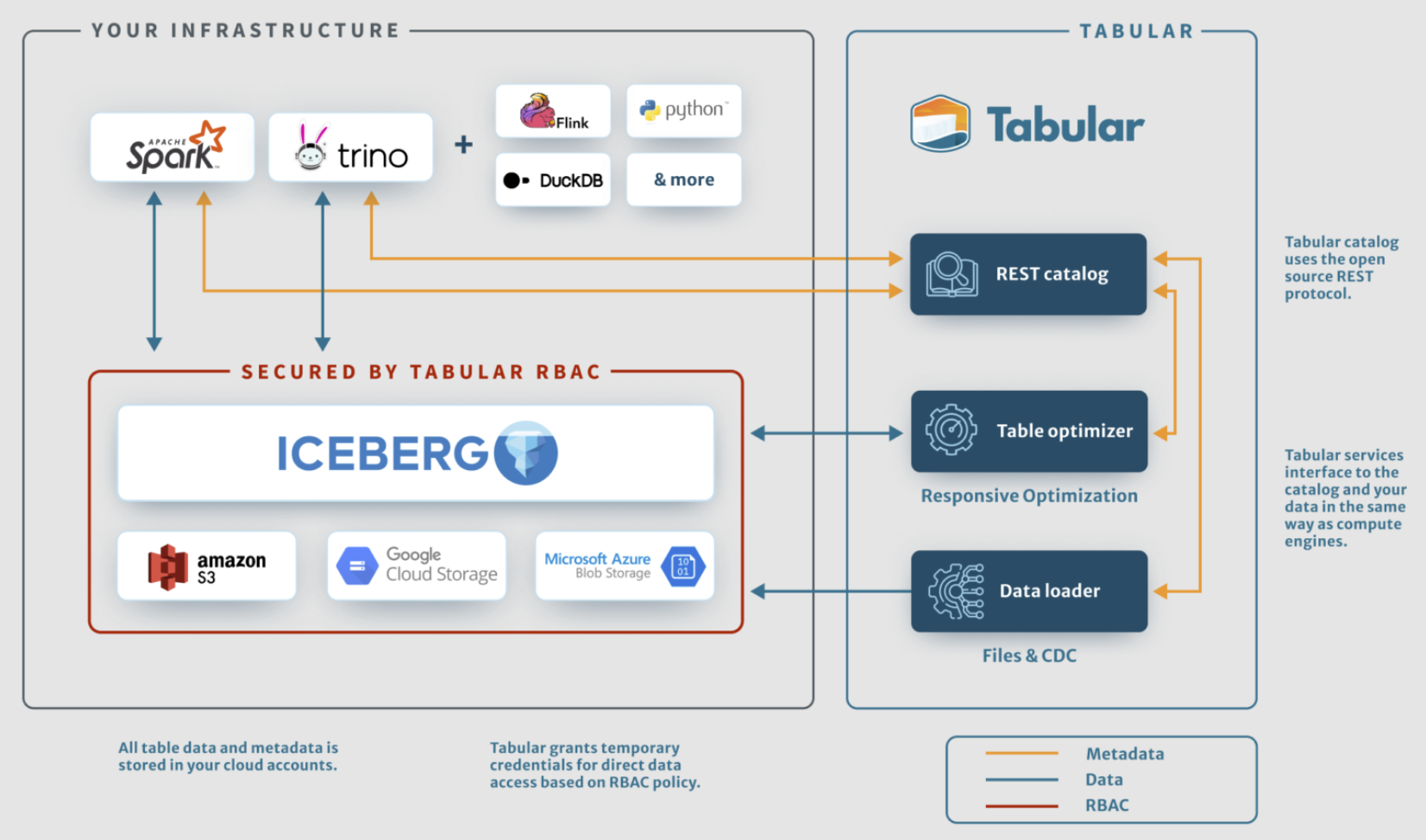Databricks said it has acquired Tabular, a data management company founded by the original creators of Apache Iceberg. The companies said they're aiming to combine their open-source cred to build interoperable data formats.
The race to support Iceberg and make data formats and tables interoperable is underway. Snowflake has pushed into supporting Iceberg and said it will open source its Polaris Catalog. Snowflake also claims its Arctic large language model is more open than Databricks DBRX.
In a blog post, Databricks said "this acquisition brings the original creators of Apache Iceberg and those of Linux Foundation Delta Lake, the two leading open source lakehouse formats, together."
"The timing of this deal is obviously intended to grab some of the Snowflake Summit limelight, but also to outdo its competitor on openness messaging with the suggestion that it will have huge influence over the future of the Iceberg standard as well as Delta Lake," said Constellation Research analyst Doug Henschen. Indeed, Snowflake execs noted that a competitor is now on the Iceberg bandwagon.
Databricks and Tabular said they plan to combine forces to improve data compatibility, so enterprises aren't limited by the lakehouse format.

Terms of the deal weren't disclosed, but the transaction is expected to close in the second fiscal quarter.
Databricks kicked off the lakehouse architecture in 2020 with the aim of integrating data warehousing and AI workloads on one platform. Databricks then worked with the Linux Foundation to create the Delta Lake project. At about the same time, Ryan Blue and Daniel Weeks, two founders of Tabular, developed Iceberg at Netflix and donated it to the Apache Software Foundation.
Delta Lake and Iceberg became the two open-source standards for lakehouse formats but became incompatible. Databricks launched Delta Lake UniForm to bring the two formats together. The project will expand its ambitions with Tabular in the fold.
"Databricks and Tabular will work with the open-source community to bring the two formats closer to each other over time, increasing openness, and reducing silos and friction for customers," said Ali Ghodsi, Co-founder and CEO at Databricks.
More Databricks:
- Databricks launches DBRX LLM for easier enterprise customization
- What to Look for in Analytical Data Platforms for a Cloud-Centric World
- Databricks acquires Arcion for $100 million
- Databricks adds on to the Lakehouse, acquires MosaicML for $1.3 billion
- Databricks launches Lakehouse Apps, aims to be development platform
- JPMorgan Chase: Digital transformation, AI and data strategy sets up generative AI
- Databricks Data + AI Summit: LakehouseIQ, Lakehouse AI and everything announced


